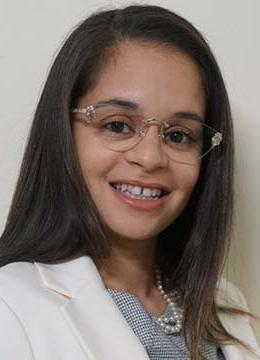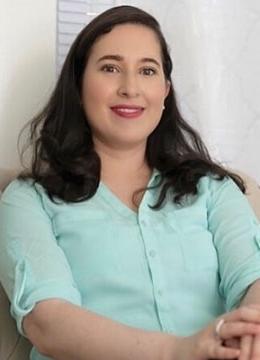校友 Help End Stigma around Mental Health
- 新闻 & esball官方网
- 新闻
- 校友 Help End Stigma around Mental Health

Multilingual mental health therapists Estrellita Moronta and 杰西卡 Toucinho are dedicated to changing attitudes in the Latinx and Portuguese communities around mental health.

When Hurricane Maria hit Puerto Rico in 2017, Estrellita Moronta ' 18, M.S.W. ’19, along with 13 other RIC students and two professors, flew to Puerto Rico to provide mental health first-aid trainings to social workers, first responders and other community workers.
Moronta believes that “mental health issues are not who you are, but issues that can be helped and treated.” Yet there's a stigma around seeking help in the Latinx community.
根据詹妮弗Gaviria的说法, cofounder of the Latino Mental Health Network of RI, supervisor of RIC interns at a health center and provider of trainings in Spanish for RIC's Healthy Jobs Certificate Program, “I think the stigma in the Latinx community is generational; it also depends on people’s experience. In general, there's the idea that you have to be 疯子 to see someone about a mental health concern.”
在波多黎各, Moronta set about reducing the stigma, 今天, she is devoting her career to removing that stigma. Moronta works at Rhode Island Hospital and is a mental health first-aid instructor certified to conduct trainings in Spanish and English.

杰西卡·图奇诺11岁, who double-majored in psychology and biology, shares the same drive to help her Portuguese community change the stigma around mental and behavioral health.
“Both our cultures are very family oriented and family based," Toucinho says. "If there's a problem with a member of the family, family members will want to work it out themselves. They don’t want other people to find out. 为他们, it's easier to talk about cholesterol or heart conditions than depression, because to mention depression is to say that there's something wrong with you or that you're crazy, 寻求帮助是一种耻辱.”

“I think we need to think about mental health like physical health,” notes Gaviria. “If we start thinking about it that way, it can decrease stigma. Stress and anxiety can be part of our lives, but when it comes to a point where it’s impacting our relationships and work, that’s when we need to talk to someone.”
Toucinho会说多种语言, 许可, mental health counselor for non-English speaking patients at Rhode Island Hospital. She has worked alongside Gaviria and Tonya Glantz, director of the Institute for Education in Healthcare, in teaching a behavioral health course in Spanish at RIC. The course is not only for health workers, but for anyone in health care who encounters a patient with mental or behavioral health needs.
“The RIC Institute for Education in Healthcare saw the need for the Spanish-language version of this course,格兰茨说, “and that’s when 珍妮花 and I helped get the entire course translated into Spanish.”
Moronta emphasized the “huge" need for more bilingual and bicultural mental health workers who are available at all times and to whom their patients can relate to. “我们人手不够,”她说. “我们看了成千上万的病人. 我本来可以, 在这孤独的一天里, 12 ~ 15例, 当我和那些病人在一起的时候, I’m not available for someone who needs a Spanish-speaking clinician."
It's also important, she says, that patients see themselves represented in their clinicians: "I have had a lot of my Latinx patients say to me, ‘I feel comfortable with you because you feel real, 你感到真实, I don’t feel intimidated to speak with you. It’s because of my face, my face says Dominican. Our community is more willing to engage in therapy when the therapist looks like them. We also reduce the stigma by choosing a career in this field.”
